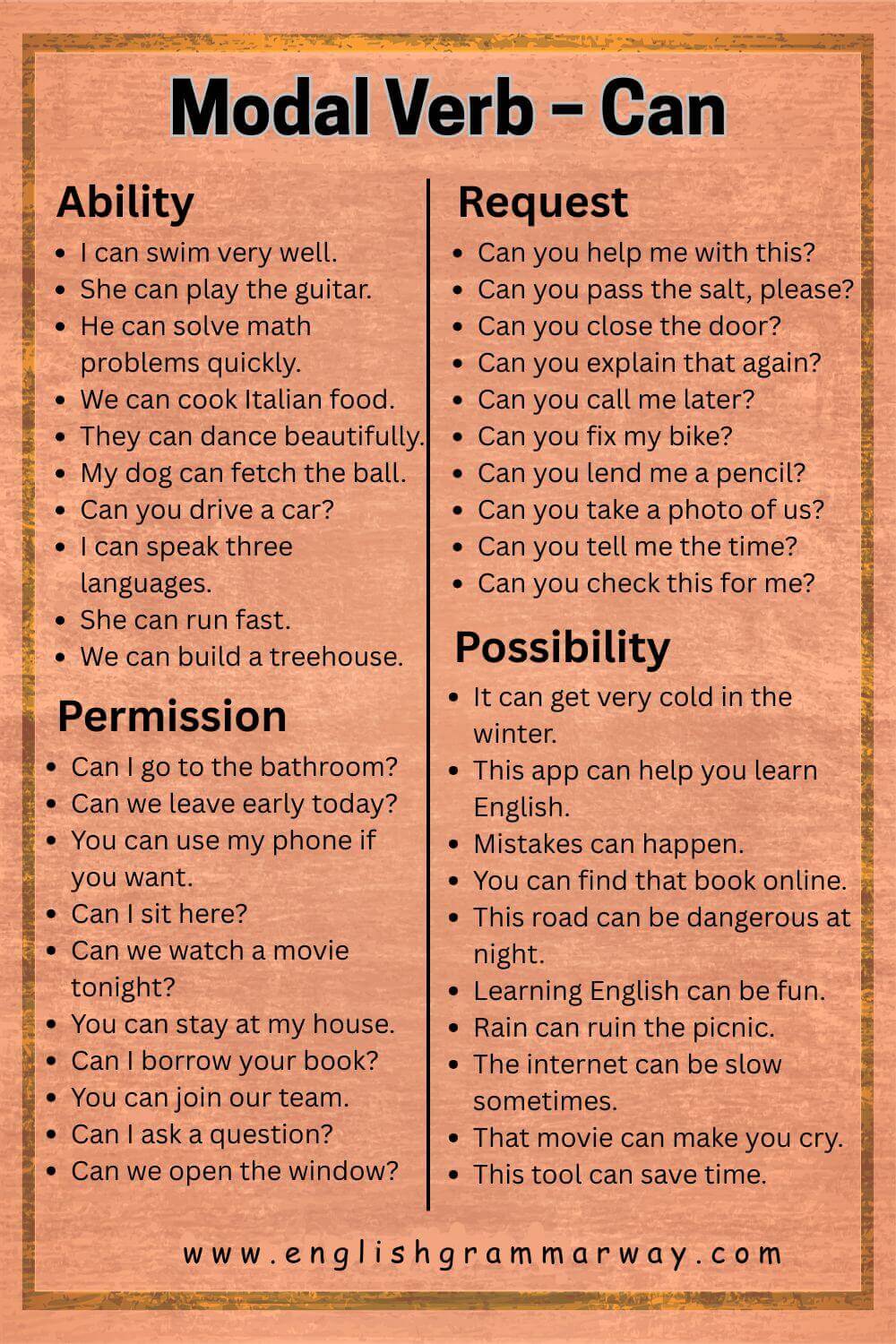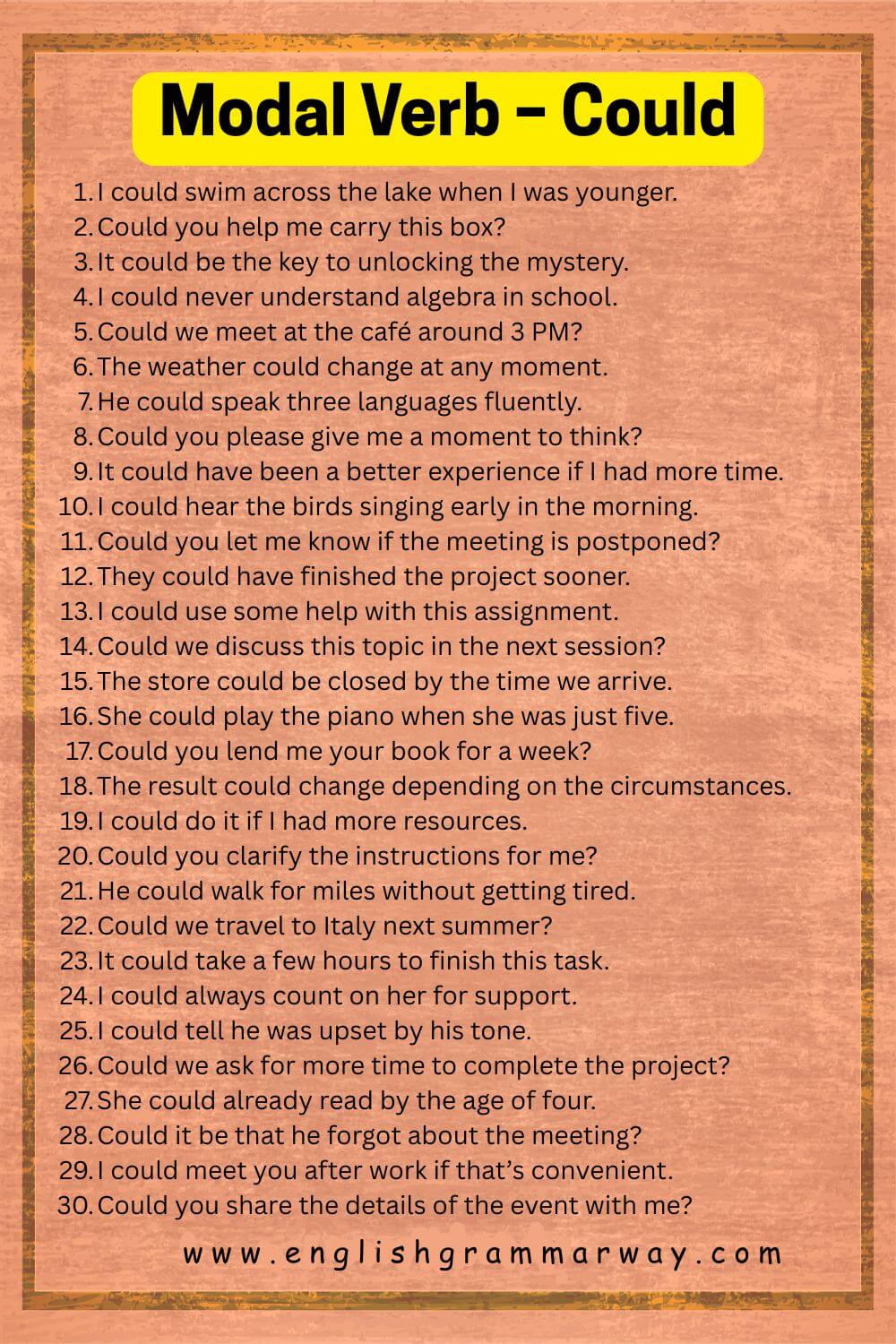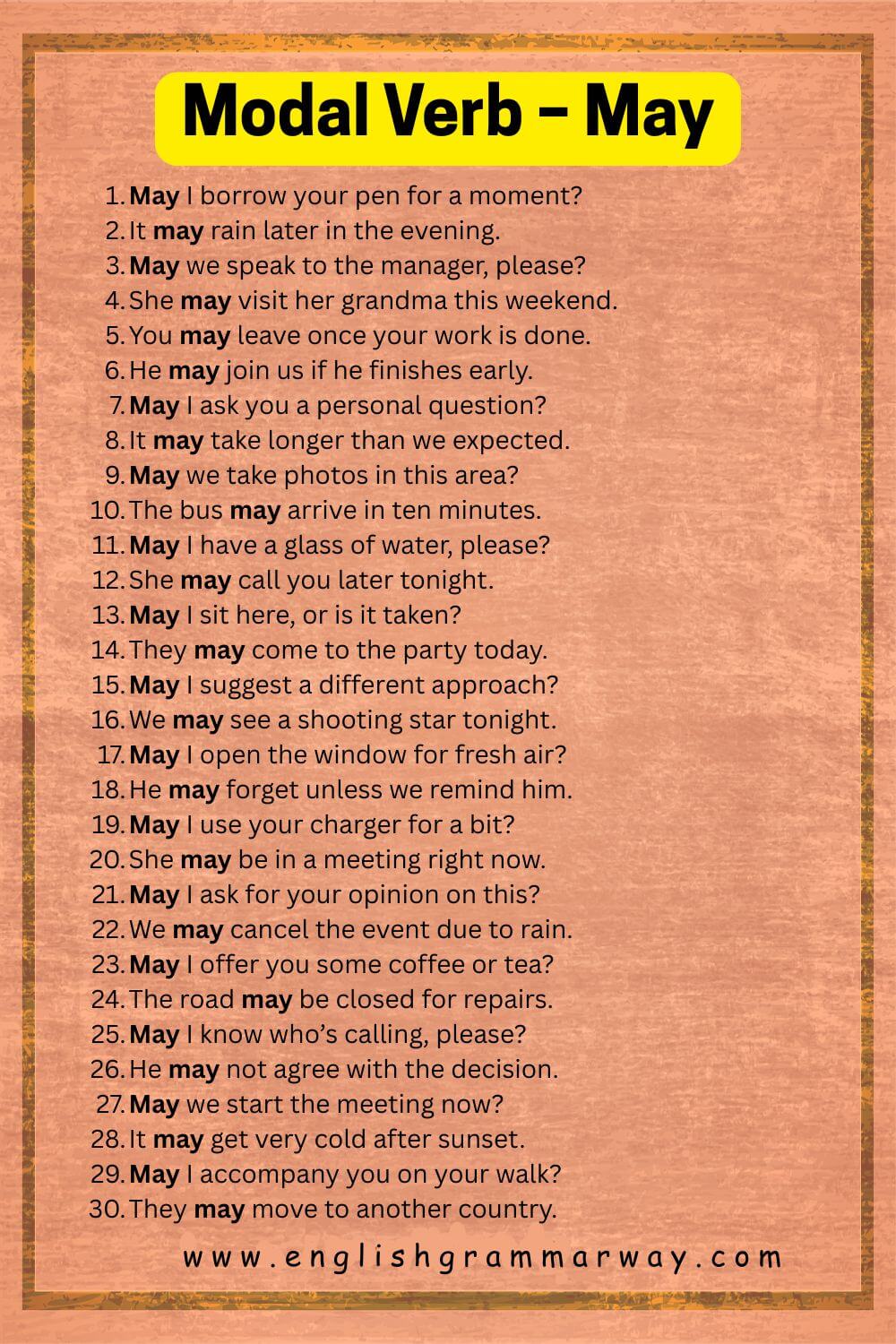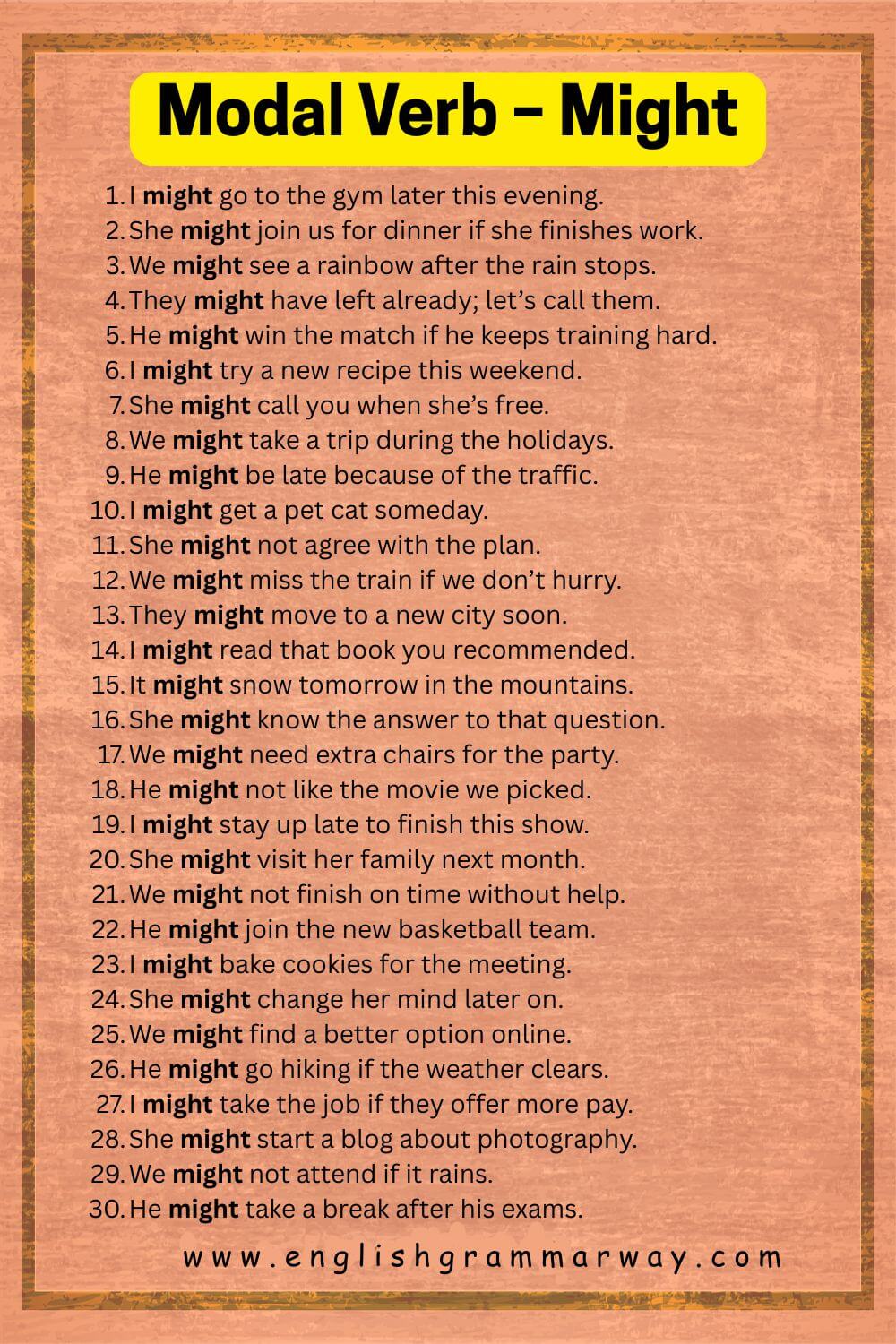Learn how to use the most common modal verbs Can, Could, May, and Might perfectly! This guide is perfect for beginners who want to improve their English grammar skills.
Introduction to Modal Verbs
When learning English, one of the key concepts you’ll encounter is modal verbs. We use modal verbs to talk about what someone can do, what might happen, what is allowed, or to ask for something. In this guide, we’ll focus on four of the most commonly used modal verbs: can, could, may, and might. By the end of this post, you’ll have a clear understanding of how and when to use these modals in everyday conversation and writing.
What Are Modal Verbs?
Modal verbs are auxiliary verbs that add extra meaning to the main verb of a sentence. They don’t act as main verbs on their own but help to modify the verb’s meaning. English learners often come across modal verbs like can, could, may, and might because they are used so often. These words allow us to express different levels of ability, possibility, or permission.
Understanding the Modal Verb – Can
The modal verb can is extremely popular and frequently appears in everyday English. It expresses or permits. It’s a straightforward way to say that something is possible or that someone is allowed to do something.
Examples
- Ability: I can speak Spanish.
- Permission: Can I borrow your pen?
Form: Just use the verb in its base form after can – no modifications needed, which makes it very beginner-friendly.
Here are 40 Examples:
Read More:
- What Are Compound and Complex Sentences? A Quick Guide
- Helping Verbs Made Easy: Simple Sentences for Beginners
Exploring the Modal Verb – Could
When to Use Could: Could is the past tense form of can, but it also has other uses. From talking about past skills to making polite requests and discussing potential outcomes, this modal verb does it all.
Examples:
- Past Ability: I could run much faster in my childhood days.
- Polite Request: Do you think you could help me solve this?
- Possibility: It could rain tomorrow.
Form: The verb that comes after could should be in its simple form, as it is with can. However, it’s important to remember that it can express a more polite tone or a hypothetical situation.
Here are 30 Examples:
The Modal Verb May and Its Uses
When to Use May: The word may is typically used to politely ask for or give permission, as well as to express the likelihood of something occurring. In comparison to can, it has a slightly more polite tone. asking for or granting permission. Additionally, may is often used to express a slightly more uncertain possibility than might.
Examples:
- Permission: May I leave early today?
- Possibility: It may snow this evening.
Form: Like with other modals, the base verb follows may, which is often chosen over can when a more polite or formal tone is needed. granting permission.
Here are 30 Examples:
The Modal Verb Might and Its Uses
Might is similar to may. But it is used to express a slightly lower probability. It’s often used when something is less certain to happen than when using may.
Examples:
- Possibility: There’s a chance we’ll go to the beach tomorrow, depending on the weather.
- Hypothetical Situation: If I had a lot of money, I might explore the world.
Form: Might is used with the base form of the verb, just like may.. It’s often used to indicate uncertainty or a small chance of something happening.
Here are 30 Examples:
Key Differences Between Can, Could, May, and Might
While these four modal verbs are similar in many ways, they each have their unique uses and nuances:
- Ability: Use can or could to describe skills or abilities.
Example: I can swim now. I could swim as a child. - Permission: When seeking permission, both can and may are appropriate.
Example: Can I leave early? May I use your phone? - Possibility: To express the possibility of something happening, we often use may or might.
Example: It may rain. It might rain. - Politeness: Use could or might to make requests more polite.
Example: Could you please help me? Might I ask a question?
Practical Tips for Using Modal Verbs
- Keep it simple: The more you practice using these modal verbs, the more natural they will become. Start by using can and could to express abilities and requests, and gradually incorporate may and might into your speech to talk about possibility and permission.
- Watch your tone: The choice between can, could, may, and might can subtly change the tone of your sentence. Use could or might for polite or formal requests.
- Remember the rules: Modal verbs are always followed by the base form of the verb, never in the past or present tense (except could, which is the past form of can).
Conclusion
Understanding the differences between can, could, may, and might is an essential part of mastering English grammar. With these modal verbs, you can talk about ability, permission, and possibility with greater confidence. Whether you’re just starting to learn English or teaching others, mastering these four modals will help improve both your writing and speaking skills. Keep practicing, and soon you’ll use them naturally and correctly!
By integrating modal verbs into your everyday conversation and writing, you’ll be able to express yourself more clearly and effectively. If you’re new to English grammar or are looking for more tips on mastering the language, visit englishgrammarway.com for more lessons and helpful guides.




